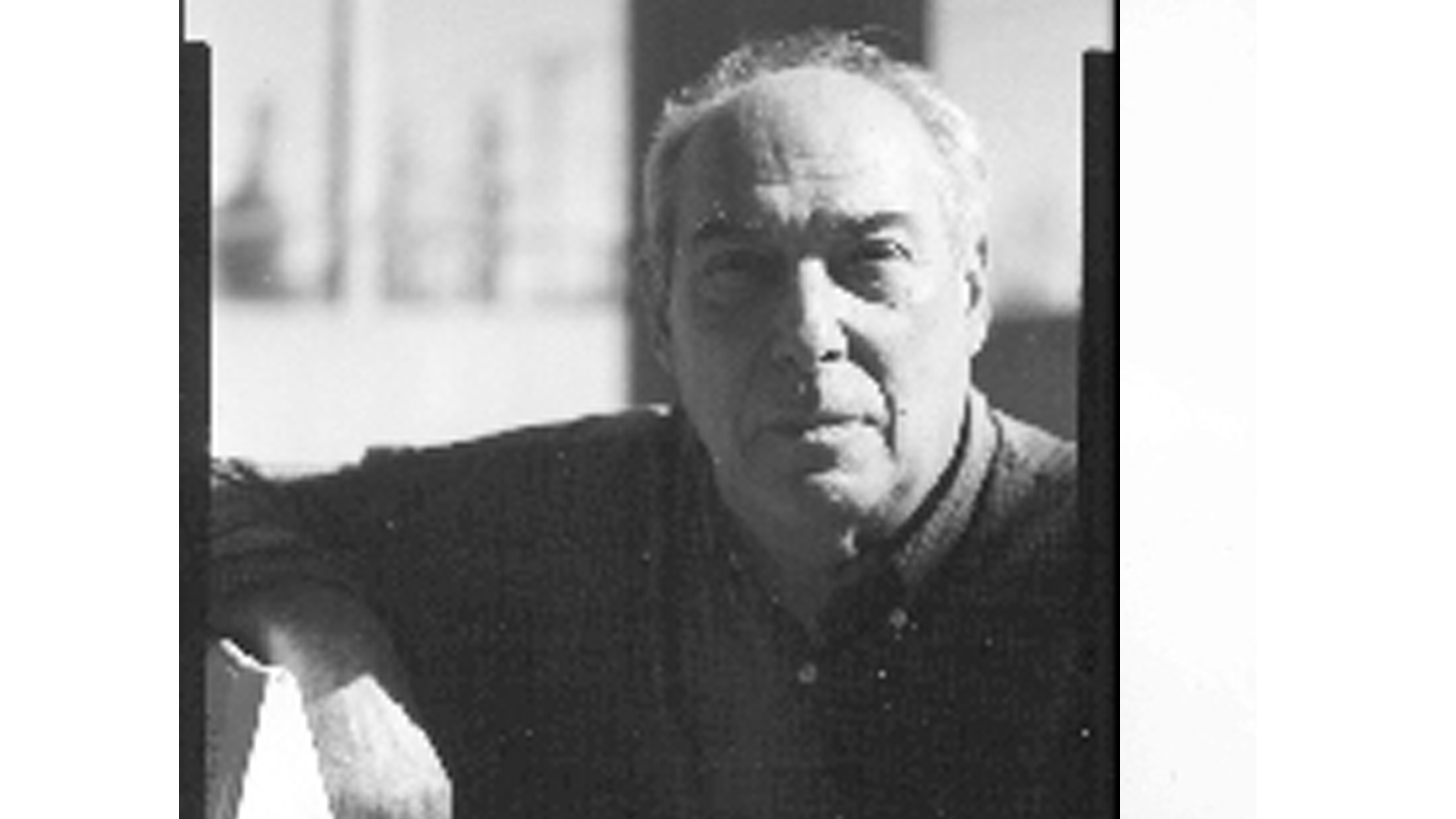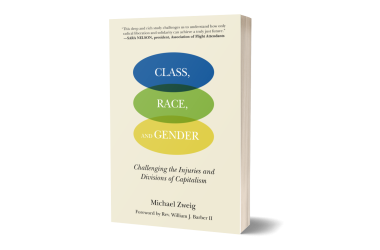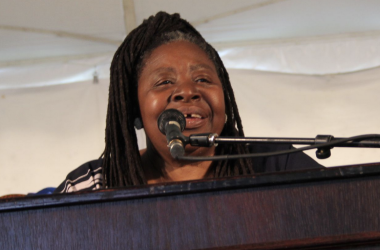By Richard Greeman
Posted by Noel Ignatiev
On Wednesday Oct. 26, the well-known Moroccan historian and human rights activist Maâti Monjib and five of his colleagues were hauled into the High Court at Rabat to answer charges of “attacks on national security” and “receiving foreign funds.” They are facing up to five years in prison for their activities as investigative journalists, human rights advocates and members of the “February 20th Movement” — the Moroccan version of “Arab Spring” of 2011.
Two days later, anti-government demonstrations spread across Morocco after social media spread the story of Mousine Fikri, a fishmonger crushed to death inside a garbage truck as he tried to block the destruction of a truckload of his fish confiscated by police. The February 20th Movement, long assumed dormant, sprang back to life and took the lead in organizing the protests, which spread to 40 cities.
These two events – the Monjib trial and the demonstrations sweeping the country — are hardly unrelated. Monjib and his co-defendants, journalists, media activists, and fighters for human rights, were already a thorn in the side of the regime even before the 2011 rising. Since then they and their colleagues have courageously struggled for media freedom while building the on-line infrastructure of information and interaction that makes possible real-time on-the-ground mobilizations like those taking place this week. Their efforts have not gone unrewarded, despite years of government harassment including base defamation campaigns in official media, bogus arrests on morals charges and the current treason trial. As today’s headlines illustrate, social media remain a potent tool in the hands of the oppressed, and the authoritarian regime of King Mohammed VI had “good” reasons to persecute media activists like Monjib and his friends.
A Long Tug of War
The mastery of social media has apparently leveled the playing field in Morocco’s long struggle for democracy and human rights. On the ground, it helps coordinate mass mobilizations challenging the regime in the streets, demanding an end to corruption, brutality, and injustice summed up by the cry (and hash tag) of Hoga!(oppression). His Majesty, out of the country on an official visit, has not returned to take charge of the emergency. In any case the authorities dare not attempt to repress the demonstrations and sit-ins by force on the eve of the upcoming COP conference in the Moroccan city of Marrakesh, at which the Monarchy’s international reputation as a progressive island of stability in the Arab world is at stake. The timing couldn’t be worse for Mohammed VI.
The tug of war on the ground is matched by propaganda war in the air in which for once both sides are well armed. The regime controls all the official “vertical” media and can spin the truth in any direction. The popular movement ripostes with its Internet-based, horizontal social media and investigative journalist-bloggers. Here’s how the story ofMousine Fikri’s death plays out in the rival media.
The regime is going through the motions of satisfying the call for justice without actually seeking justice. The Royal Prosecutor in the town of Al Hoseima noisily prosecuting eleven officials. This made the N.Y.Times. But don’t look too closely. To calm the fury, the eleven police and fishery officials have been locked up, but for “forgery” (in fact faulty paperwork in recording the incident). They will be released when things calm down. However the Prosecutor is not investigating the question of who gave the order to turn on the crushing machine at the back of the empty garbage truck. (The fish had not yet been loaded). According to the independent on-line journal Le Desk, this operation requires the cooperation of two workers: the driver to turn on the electricity in the cab and his assistant to pull the lever at the back of the truck, where Mr. Fiki and his friends were presumably visible. Eyewitnesses have been quoted saying they heard someone give the order: “crush him.”
The authorities are classing Mr. Fiki’s death as an “accident.” In the social media, it is called a “state-crime.” Few believe the regime will keep its promises to “investigate” Fiki’s death: after five years the Interior Ministry still has not found who was responsible for the deaths of 15 protesters on Feb. 20, 2011 — the date which gave the popular movement its name. The regime, through its official and allied websites, has also been flooding the web with disinformation designed to confuse and discredit what the protestors and the independent media are saying. These wild stories are not likely to be believed by anyone but dedicated loyalist
Background to this Struggle
The democratic uprising in Morocco (also known as “Revolution2.0” or “the social media revolution”) was not defeated in the Spring of 2011, only stalemated in its struggle with the makhzen (or deep state) that rules supreme behind the façade of a progressive, pro-Western monarchy, based on well-controlled moderate Islam (the King is also Commander of the Faithful). In July 2011, Mohammed V succeeded in diverting the broad democratic movement’s demands into electoral channels by proposing a new, more “liberal” constitution in a snap referendum.
This “compromise” Constitution gained a hardly credible 98.7% of the votes, and has never been enforced, au contraire. As the democracy spring faded into memory, the makhzen, thirsty for revenge,began tightening the screws on February 20th and Human Rights activists and above all on the independent investigative journalists, who expose corruption and oppression. For example my good friend Ali Anouzla, the independent journalist who in 2011 first brought the news of the uprisings in Tunisia and Egypt to the Moroccans, was imprisoned in 2013 for “inciting terrorism” (in fact for exposing the corruption of the Monarchy)
Meanwhile, during 2009-2016 over at the Center for Study and Communication in Rabat, hundreds of young journalists and human rights activists were being trained to use the electronic tools of citizen-journalism, in particular the App known as StoryMaker (mentioned in the indictment against Maâti Monjib and his students). The Center was founded by Monjib (Professor of History at the University of Rabat) and named for the tolerant medieval Arab philosopher Ibn Rochd (Averroes in English).
Repression
As repression increased in 2015, the government forced the Center to close. Monjib, an internationally known scholar who frequently attends conferences, was stopped at the Casablanca airport and banned from traveling. Only at the end Monjib’s 20-day public hunger strike did the government agree to lift the ban. Next came a series of groundless accusations culminating in the Rabat High Court trial for “attacks on state security” and “mishandling funds,” a trial that once again was adjourned last week, perhaps because there is no evidence.
Another reason why the regime is trying to discredit Monjib is that he edited a book entitled « Islamists versus secularists : Dialogues and Confrontations » and brought representatives of two independant Islamic Parties together with Socialist and Secularist leaders on his campus. This was the first public dialogue between the two sides, which have often settled their differences in blood, and was covered by Al Jazeera and other serious media. These meetings continued and resulted in the rapprochement of the two sides in a common pro-democracy movement, such as has recently been achieved in Tunisia. The Makhzen, whose policy is “divide and rule,”rightly considers this rapprochement a threat to its hegemony.
As a result of these activities, Monjib has been the object of a sustained campaign of calumny aimed at destroying his reputation as a scholar, human rights activist and man of peace. Pro-government websites continue to spew filth about Monjib’s impeccable personal and financial life. Monjib himself analyzed these techniques in an article published before he himself became a victim: First, activists are attacked in media close to the secret services so as to discredit them and prepare public opinion for what is coming next. He distinguished three types of slander: sex for Islamists, drugs for young activists and money for Left personalities. Next are publically accused of “high treason,” “espionage,” “drug possession,” “tax evasion,” “illegal business,” etc., often changing the charges and keeping them tied up in court.
A defense committee (supported by Noam Chomsky) has been established in France, and funds and support are very much needed. Please sign up at [email protected] (dollars and pounds accepted).
Theory and Practice
Among the ibn Rochd Center’s most promising graduates are two of Monjib’s young co-defendants before the High Court of Rabat: Samad Iach and Hicham Mansouri. Last year, the scholarly, slight Mansouri was arrested, convicted and sent to prison a trumped-up charge of living off prostitution. Iach and Mansouri are now in exile in Paris, where they are working as journalists and studying communications at the University. Mansouri’s thesis-in-preparation documents how on-line discussion of democracy and revolution actually preceded the revolts of 2011 and shows how “people with a common interest in democracy built solid networks and organized political actions.” He concludes, “armed with their Smartphones connected to the Internet, thousands of young activists and citizen-journalists have succeeded in getting around censorship and providing information in real time while encouraging sharing, comments and interactions among the citizen-users.” This is clearly bad news for corrupt despots everywhere, Morocco not excluded.
According to Forbes, Mohammed VI is the richest man in North Africa and the fifth richest on the continent. The King has control over and profits from the national economy in every sphere, for example phosphates, Morocco’s most profitable export, as well as the fishing industry. His Majesty has imposed an electoral system which makes it impossible for any party to win an absolute majority, and the new Constitution, devised by a commission all of whose members were nominated by the King, leaves all power in his hands. Unlike his father, Hassan II, who during his long reign (1961-1999) was infamous for his use of kidnapping, torture, and long-term imprisonment, Mohammed VI, a progressive, modern autocrat, prefers new methods of repression, similar to those used by the ‘progressive’ and pro-Western Aliev dictatorship in post-Communist Azerbaijan, considered one of the worst human rights violators in the world.[1] Mohammed VI has excellent reasons to want to take revenge on Professor Monjib and his friends, and today His Majesty is stuck between a rock and a hard place. Stay tuned.
Although the world looks dark these days, the continuing tug of war in Morocco inspires hope… and solidarity. Please contact: [email protected]
Nov. 1, 2016
[1] https://blogs.mediapart.fr/hicham-mansouri/blog/181016/affaires-monjib-et-yunus-maroc-azerbaidjan-memes-techniques-de-repression
Back to Noel Ignatiev’s Author Page | Back to Richard Greeman’s Author Page






